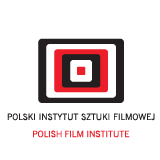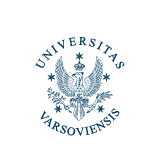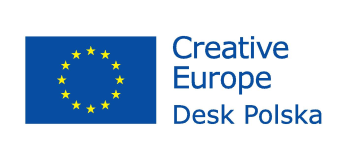9.15-10.00 reception
10.00-10.15 Opening address – Prof. Tadeusz Tomaszewski, Pro-Rector of the University of Warsaw, Agnieszka Odorowicz, Director of the Polish Film Institute, Prof. Jan Madey, Rector’s Deputy for Multimedia Education, University of Warsaw
10.15-10.20 The aims of the conference – Dr Krzysztof Kopczyński, University of Warsaw, Eureka Media Ltd.
Video
The European Union – institutional support in the field of media and case studies
Moderated by Prof. Jan Madey, Rector’s Deputy for Multimedia Education, University of Warsaw
10.20-10.40 The European Union: New Opportunities for Film and Media Literacy (in UE) – Dag Asbjørnsen, Program Media and Film Literacy of the European Commission, Brussels
More
I will discuss different approaches to the concept of Media Literacy, and give an overview of the different EU policy initiatives in the past. I will then move to the definition of Media Literacy and the concept of Film Literacy. The next stage examines policies on media literacy in general, i.e. as a goal in its own right or as a means to achieve other goals. I will then focus on current EU studies and policy initiatives related to Media and Film Literacy, mainly connected to the upcoming Creative Europe programme. The main question is: how can the EU contribute to promote Media Literacy on a European level, and what should the main tools of EU policy be.
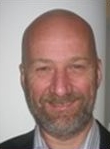 Dag Asbjørnsen
Dag Asbjørnsen – I am a Norwegian National Expert (END) in the audio-visual field, currently working for the European Commission. I have been delegated by the Ministry of Culture in Norway where I am an audio-visual policy adviser.
I have a degree in Media Science from the University of Oslo (Cand. Philol./MA equivalent) with a major in Films Studies. At the Commission, I mainly work on Media and Film Literacy, The MEDIA Mundus Programme and the Creative Europe Programme.
Video
10.40-11.00 Sweden: Audiovisual Realities in the Public Sphere – A Critical Perspective on the Conditions for Audiovisual Communication – Per Zetterfalk, Luleå University of Technology
More
I will analyse the driving forces behind the development of the audiovisual public sphere in the Swedish context. Audiovisual production refers to the sound and visual components in film, TV and new media. The study focuses on the working conditions for primetime TV. I ask: How does the ongoing mediation of reality affect what producers and participants in the audiovisual field believe they can communicate and not? Interviews with professionals from various fields will be used. They begin with a concrete example: the behind-the-scenes documentation of a large modern TV production, the reality TV series The Kingdom (Riket) by Swedish Television, produced in Legnica, Poland in 2004.
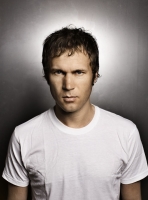 Per Zetterfalk
Per Zetterfalk is a senior lecturer in TV production with a PhD in Artistic Formation. His research interests include directing as research and audiovisual realities in the public sphere. He collaborates with European and American institutions, festivals and biennials. He is a member of workgroups in the European League of Institutes of the Arts, and an integral part of the international networking project SHARE, Step-Change in Higher Arts Research and Education, with 39 partners across Europe.
Video
11.00-11.20 United Kingdom: Filming the local – Ed Owles, Postcode Films, London
More
Postcode Films has been running participative film workshops for the last 5 years with young people, students & community groups. With a background in visual anthropology, we use documentary film to explore localised realties. The talk will summarise the communities we have worked with both domestically & abroad, and how the workshops can complement mainstream educational opportunities, provoking broader reflections about the responsibilities & potential of filmmaking in an increasingly visual world. Using examples from our award-winning films, it will discuss the emphasis we place on collaborative, engaged filmmaking & the potential for wider community engagement with the finished projects.
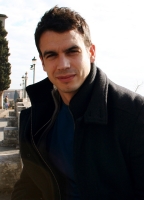 Ed Owles
Ed Owles is an independent filmmaker who has directed short documentaries for Channel 4 UK, Al-Jazeera and Current TV, and made numerous films for NGOs and the public sector across the globe. He's an Associate Tutor in Ethnographic Film at Goldsmiths, UEA and UCL, and often using film in research projects. Ed graduated from Cambridge with a degree in social anthropology, and has an MA in Visual Anthropology from Goldsmiths University. He speaks Italian and Spanish and is a Fellow of the RSA.
Video
11.20-11.50 Discussion
11.50-12.05 Refreshments Break
12.05-12.25 Germany: Film education in Germany – Elena Solte, Vision Kino gGmbH, Berlin
More
The presentation will show the German film education initiative VISION KINO – Network for film and media competences within a broader context of film education in Germany.
It will give an overview of different projects, as the nationwide SchulKinoWochen and other activities of VISION KINO, outlining their connection to school curricular, subjects and degree. The presentation will further discuss this case study in the context of educational politics in Germany, considering e.g. the special situation of a federal organised political administration and its impact on education policy.
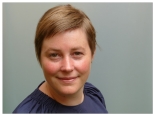 Elena Solte
Elena Solte – studied French, sociology and education in Leipzig with a special focus on French cinema. She worked for film festivals, taught German language in France and worked in projects devoted to media and cultural education in France and Germany. She works for VISION KINO - Network for Film and Media Competences since October 2012.
Video
12.25-12.45 Poland: A future-oriented model of feature film production – a new project of the Film Spring Open Foundation - Sławomir Idziak, Film Spring Open Foundation
More
For 7 years, Film Spring Open has been implementing a training program for professionals and talented individuals in the audiovisual industry. The annual film workshop, Film Spring Open-Air, is a great place not only for discussion about the future of cinema but also for making films using new technologies (2D, 3D and interactive dramaturgy). During the Case Study Sławomir Idziak will talk about next year’s Film Spring Open Foundation project – a new form of selection of feature film projects based on script previsualization (so-called Previs or film draft) and their future professional production in the new economic model of film production.
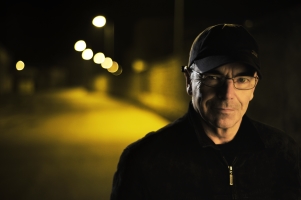
As a director of photography,
Sławomir Idziak has made over 70 films in 19 countries, i.e. K. Kieślowski's Double Life of Veronique and Blue, Ridley Scott's Black Hawk Down, David Yates's Harry Potter and The Order of Phoenix. , winner of awards at the festival in Berlin, Venice, Prague; nominated to BAFTA, Cesar and Oscar. His 40-year experience as both a filmmaker and lecturer urged him to create a place focused on the future of cinema – Film Spring Open Foundation.
Video
12.45-13.05 The Netherlands: Between the rampant of the media and media education. The Dutch case – Dr Piotr Lehr-Spławiński, University of Warsaw
More
The speaker has chosen as his subject of interest media programmes – or formats – which continue to go beyond limits, e.g. De Grote Donor Show (BNN 2007), where an organ donor selects their recipient in the form of a media spectacle. The speaker confronts this event with the educational-research initiative of the Institute of Image and Sound (Beeld en Geluid) in Hilversum. Conclusions concerning current models of audiovisual education in this country emerge from this. The speaker believes they also have a more universal dimension.
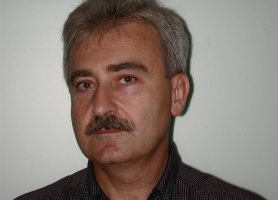 Piotr Lehr-Spławiński
Piotr Lehr-Spławiński – PhD, associate professor in the Department of Rhetoric and Media at the Faculty of Polish Language Studies, University of Warsaw, founder and coordinator of the Polish language professional specialisation Philology for the Media. A member of the international association The Future of the Media. Research interests: popular literature, advertising in contemporary culture, creative writing.
Video
13.05-13.35 Discussion
Video
13.35-14.20 Lunch Break
Beyond the European Union
Moderated by Joanna Wendorff-Østergaard, Director of Media Desk Polska
14.20-14.40 Russian: Twenty years of Russian film education: some results – Prof. Nikolai Izvolov, WGIK, Moscow
More
Over the last twenty years, I’ve taught in various educational institutions in Russia.:
- In the early 90s, free, state education began to disappear, with very negative consequences.
- Paid and budgetary students could study together, leading to stratification of the student's environment.
- Digital equipment and nonlinear postproduction meant the cinema ceased to be a collective product, and grew closer to work on radio and TV.
- Big studios began to die, as there was less need for technical experts.
- Internet forums and social networks mean that different kinds of information became easily available. Media production began to be staffed by uneducated, or self-educated employees.
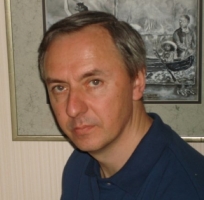 Nikołaj Izwołow
Nikołaj Izwołow has a PhD from the Moscow Film Institute. He previously worked at the Museum of Cinema in Moscow and was also deputy director of research at the Russian State Cinematography Institute.
He currently works at the Research Institute for Cinema Art in Moscow. He reconstructs and restores so-called “lost” films from the 1920s and 1930s. He wrote the book
The Phenomenon of Cinema: History and Theory. He and Natascha Drubek-Meyer co-developed
HYPERKINO, a method of annotating films.
Video
14.40-15.00 Ukraine: Media education in Ukraine: history and prospects for further development – Elena Kutsenko, All-Ukrainian Association for Film Education and Media Pedagogics, Symferopol
More
Media education is very popular in Ukraine, as it is globally. It has developed from film education in two main areas: professional education of future filmmakers and journalists, and teaching children, teenagers and youth through amateur film studios and film clubs. There are four institutions now in Ukraine involved in the process of developing media education. In 2011 an experiment began in Ukraine on the adoption of media education into the curriculum of secondary schools. It is going well. Various learning aids, educational programs, methods of teaching media in different educational stages – primary, middle and high school are being developed.
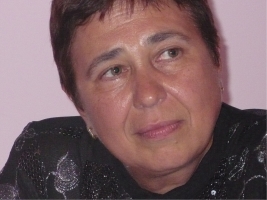 Elena Kutsenko
Elena Kutsenko – professional film educator and media teacher. Studied at the film faculty of the Kiev State Theatrical Institute. Since 2005 she has worked at the Kinovideoprokat film distribution enterprise and for the All-Ukrainian Association for Film education and Media Pedagogy. She is the regional coordinator of the Docudays Ua Human Rights Documentary Film Festival in Crimea, and collaborates with International children and youth festivals of audiovisual arts.
Video
15.00-15.30 Discussion
15.30-15.45 Refreshments Break
15.45-16.15 Pakistan: Visual Arts A Way Forward – Prof. Daniyal Ali Khan, South Asian Academy of Motion Picture Arts and Television, Karaczi; Skype discussion
More
Since independence, the Government of Pakistan has made no progress in promoting education in the performing and visual Arts. Additionally, there is also a lack of trained professionals. After a profane film on YouTube cost millions as mobs torched down the historical theatres, the situation has got very alarming regarding arts and creativity in the country. It is essential for cinemas to grow and flourish in Pakistan. Meaningful patronage by the concerned authority would be a way forward.
The South Asian Academy of Motion Picture Arts and Television (SAAMPT) is playing a positive role in producing better HR, and helping to produce quality expertise.
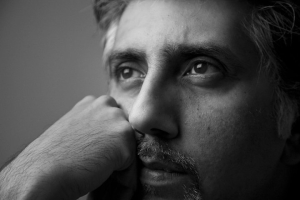 Daniyal Ali Khan
Daniyal Ali Khan, is currently Dean of the South Asian Academy of Motion Picture Arts and Television. An independent filmmaker and a graduate from Columbia College Chicago, USA in Film and Video. Daniyal was head of the Media Sciences program at SZABIST, a pioneer in developing the four year Film and Video degree program in Pakistan.
He facilitated British High Commission Workshops in 2004 and 2009 and has led delegations, attended workshops and exchanged curriculums at numerous schools in India.
Video
USA: YouTube Creator Institute – Case Study – Wojciech Lorenc, Columbia College, Chicago; Skype discussion
More
During the Summer of 2011 YouTube and Columbia College Chicago organized an eight week long course focusing on online video. For the first time the leading technology company Google and its subsidiary YouTube shared with an educational institution the best practices in creating video content and optimizing distribution strategies for highest viewership and audience building and cultivation. The curriculum was built in a highly collaborative way with over 30 YouTube/Google engineers. This presentation will discuss the creation of curriculum of the YouTube creator institute, as well as the experience of co-organizing an educational event with a large corporate entity.
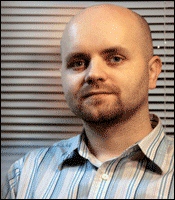 Wojciech Lorenc
Wojciech Lorenc is an Assistant Professor at Columbia College in Chicago. He has worked in the television industry as a producer, director, shooter, and editor and his teaching focuses on directing and producing as well as internet and mobile media. He has screened his work in over 80 festivals in 15 countries and he won awards both in the US and internationally. Wojciech's work in the areas of online delivery and exploring social media for content distribution has allowed him to reach over 20 million viewers worldwide with various projects.
Video
16.45-17.00 Refreshments Break
Poland – research findings and a look at the future
Moderated by Beata Chmiel, Plenipotentiary of the Polish Film Institute Director
17.00-17.20 Children of the Internet – children’s communication competences (research findings) – Dr Piotr Siuda, Dr Grzegorz D. Stunża, City Culture Institute, Gdańsk
More
The authors will discuss research aimed at diagnosing the state and level of online communicative competence of children aged 9 to 13. Results of the research will also be discussed, including:
- A model of online communicative competence,
- Methods of coping with the digital exclusion of children,
- Stimulating children’s communicative competence,
- Defining the role of the educational community and the formal and informal educational relationship in the evolution of this competence,
- Shortcomings in current syllabuses
The authors will also show the universal character both of the model of communicative competence arrived at, and tools used for its/their diagnosis.
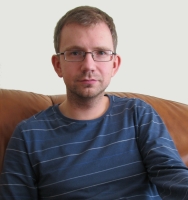 Piotr Siuda
Piotr Siuda – PhD in sociology, Assistant Professor in the Faculty of Sociology at the Kazimierz Wielki University, author of Religion and the Internet (2010), The Cultures of Prosumption (2012), Japonisation. Anime and its Polish Fans (being published) and the pop-culture blog piotrsiuda.pl. His research interests are the sociology of culture and social aspects of the Internet. The coordinator of the project Children of the Internet – Children’s Communication Competences.
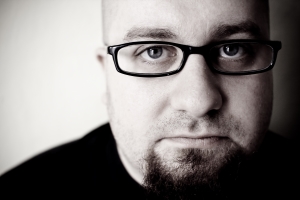 Grzegorz D. Stunża
Grzegorz D. Stunża – PhD, Assistant Professor at the Department of Media Education in the Faculty of the Philosophy of Education and Cultural Studies at the Institute of Pedagogy, University of Gdańsk. He lectures in the field of media and researches digital culture. He writes the blog edukatormedialny.pl. A member of the team of the projects Children of the Internet – Children’s Communication Competences and The Digital Future. He collaborates with the National Audiovisual Institute.
Video
17.20-17.40 The Digital Future – milestones and further plans – Dorota Górecka, Modern Poland Foundation
More
What are media and IT competences? What is their current state? What tools do we need for their development? The Digital Future is a project of the Modern Poland Foundation, which is searching for answers to those questions. Its first stage was the thorough diagnosis of the state of media education in Poland, after which a catalogue of media and IT competences was developed, clearly divided into thematic fields and ages groups. Thanks to that an innovative programme of media education for children, teenagers and adults was created. Using the above-mentioned catalogue the Foundation is preparing a pack of modern teaching materials for use in schools, libraries and cultural institutes.
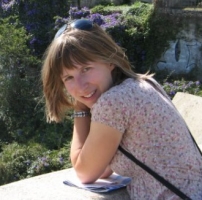 Dorota Górecka
Dorota Górecka – trained as a sociologist. Coordinates the media education project The Digital Future in the Modern Poland Foundation. She Has collaborated with the Copernicus Science Centre and Polish Humanitarian Action, running works hops for children and teenagers. She has coordinated projects of social responsibility in business for IBM Poland. She worked for two years in two British NGOs – Business in the Community and The Scout Association.
Video
17.40-18.00 Why do we need law in media education? – Jarosław Lipszyc, Modern Poland Foundation
More
Media education enjoys growing interest among international organisations and policy-makers. In UNESCO and EU documents often appears the theme of including elements of law in media education. One barrier to the development of media competence – indicated, for example, in the UNESCO Moscow Declaration of June 2012 – are limits to the freedom to use information. We would like to show how the current system of law influences media education, how to link media and legal education and how to make use of the chance which open educational resources represent.
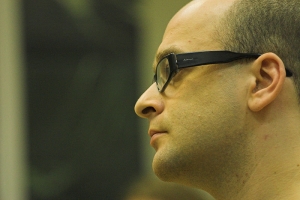 Jarosław Lipszyc
Jarosław Lipszyc – president of the Modern Poland Foundation, member of the presidium of the Coalition for Open Education, member of the committee of Citizens of Culture. An experienced former journalist, a poet and musician, currently an active promoter of modern education and free culture. He gives talks and lectures about modern technologies, education and Internet law. An active promoter of dialogue and collaboration between the non-governmental sector and public administration.
Video
18.00-18.20 Understanding (Polish) media – Dr Krzysztof Kopczyński, University of Warsaw, Eureka Media Ltd.
More
Beginning with metaphors suggested by M. McLuhan (
Understanding the media: The Extensions of Man, 1964), I shall examine the state of media education in Poland in 2012. I shall refer to the following contexts:
- The situation of Polish media,
- Certain formal and legal aspects, particularly the new Ministry of Education and Science syllabus,
- Research and analytic and programme-based initiatives,
- Actions by institutions supporting or capable of supporting new projects in the field of audiovisual and media education.
These reflections we serve to identify the aim of audiovisual and media education syllabuses for the years to come.
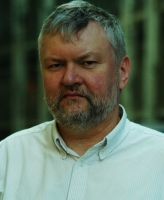 Krzysztof Kopczyński
Krzysztof Kopczyński – PhD, Associate Professor at the Department of Rhetoric and Media at the Institute of Applied Polish Studies, University of Warsaw, president of Eureka Media, coach in the International Coaching Community, member of the European Film Academy. His focuses have been education and consultancy in the field of media since the end of the 20th century. Producer of documentary and feature films aired on television and at festivals in several dozen countries, awarded with prizes over 130 times.
Video
18.20-18.35 Refreshment Break
18.35–18.55 Research and media education in the context of communicative competences – Dr Mirosław Filiciak, Warsaw School of Social Sciences and Humanities
More
During the presentation, projects concerning the communicative competences of Poles carried out by Centrum Cyfrowe (The Digital Centre) will be presented. The point of departure will be a reflection on a normative approach to media competences, and an attempt to describe a project treating them in a context-based way – with the real needs of various social groups taken into consideration. It would appear that the dominant means of measuring media competences are actually measures of the extent to which the entire population behaves with the media in the same way as members of the urban middle class. A context-based approach to media education may be treated as a pretext to asking questions about the changing role of media practices in Poland.
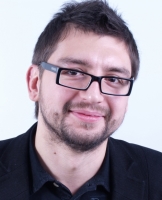 Mirosław Filiciak
Mirosław Filiciak – PhD, expert in culture and media, Assistant Professor at the Institute of Cultural Studies at the Warsaw School of Social Sciences and Humanities. He manages the research department of the Centrum Cyfrowe (The Digital Centre), where he and his team have carried out research into “Obiegi Kultury” (A Culture Circulation), and is currently working on projects concerned with the communicative competences of Poles. He edits the quarterly “Kultura Popularna” (Popular Culture). Author of “Świat z pikseli” (A World of Pixels) (2010).
Video
18.55–19.15 – Anna Sienkiewicz-Rogowska, Polish Film Institute
More
 Anna Sienkiewicz-Rogowska
Anna Sienkiewicz-Rogowska A graduate of the Kozminski University in Warsaw and of the Management Department at Cracow’s University of Economics, Anna has worked in banking, in the sector of capital operations, and as a marketing expert.
As a cultural events organiser, she has participated in the preparation, promotion and organisation of many cultural events, including the Impressionists Exhibition "From Manet to Gauguin", as well as the TRANSALPINUM exhibition at the National Museum. She also played an important role in organising many special events for various commercial entities. Between 2001 and 2005 Anna was the producer of the Film and Art Festival “Film Summer”, and has also co-operated in the production of documentary films. She gives lectures at Warsaw University on management in the culture sector.
Since 2008 has been the head of the Department of Education and Dissemination of Film Culture at the Polish Film Institute. She supervises the implementation of educational programmes, such as the “School Filmotheque” addressed towards secondary schools and Polish Film Academy addressed towards university students. She is responsible for the system of subsidies for film schools and other institutions conducting film education programmes. She is also responsible for projects connected with the development of cinematic activities, including the improvement of infrastructure and digitisation, and for co-operation in the implementation of the national digitisation strategy for the audiovisual archives. She manages a team dealing with the national promotion of Polish cinematography, art house cinemas and film discussion clubs.
Video
Prognoses of audio-visual and multimedia education in Poland – discussion and round-up of the conference
Video

